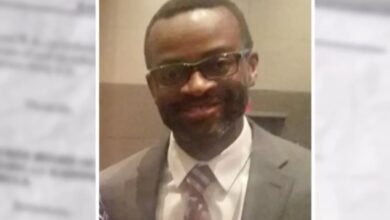‘Tammy vs Tommy’ Senate Race Enters Home Stretch
by Scott Bauer, Associated Press
MADISON, Wis. (AP)—Who wins the “Tammy vs. Tommy” U.S. Senate race may come down to who is better at convincing voters that their opponent isn’t who they appear to be.
Both sides and their allies broke spending records driving home their messages trying to paint Democrat Tammy Baldwin as a radical extremist and Republican Tommy Thompson as someone who’s not for Wisconsin anymore.
The infusion of nearly $50 million on mostly negative television advertising dominated the tone and tenor of the race. The ads got so nasty, and so far from the core issues at stake in the election, that candidates ended up arguing in the waning days of the race over who cares more about victims and first responders to the 9/11 terrorist attacks.
Arguing over that topic—which consumed much of last week and ensnared former New York Mayor Rudy Giuliani, Gov. George Pataki, relatives of survivors and first responders—also took center stage at their final debate Friday.
The money spent, and the attention given to the open Senate seat, speaks to its importance nationally. With Republicans needing four seats to take over the majority, or three if Mitt Romney is elected president, winning in Wisconsin could make the difference.
Now with the race in its final days, who actually wins will be dependent on several factors. Among them are who can turn out their voters better, who independent voters ultimately side with, if Romney or President Barack Obama will provide enough of a bump to affect the Senate race, and whether voters will ultimately accept the narratives pushed by the campaigns and the ads.
Polls show both the presidential and Senate race in Wisconsin to be dead heats.
Polls also show that both sides have been effective at their messaging as driven home by the barrage of TV ads. A Marquette University Law School poll released Oct. 17 showed that 48 percent of responders believe Baldwin is too liberal, and 48 percent also believe that Thompson doesn’t care about Wisconsin.
“The negative advertising has worked, but it stuck to both candidates to equal degree,” said Marquette pollster Charles Franklin.
The Senate race has been taken over by the television spending, said Paul Maslin, a Democratic pollster who’s worked on Senate races since Herb Kohl’s first run for office in 1988. There’s little either candidate can do to break through it, he said.
“When you have that kind of saturation taking place … almost any event has a transitory impact on the race and then it disappears,” he said.
In the 2010 Senate race, won by Republican Ron Johnson over Democratic incumbent Russ Feingold, about $33 million was spent. In 2004, only $15 million went into the race.
Baldwin’s campaign has been disciplined and low-key, with the seven-term congresswoman sticking to her plan and not making any glaring missteps. While her demeanor on the campaign trail may border on boring, she’s maintained a steady message while trying to convince voters that she’s more in touch with the needs of the state than the 70-year-old Thompson, who hasn’t been on the ballot in 14 years.
Thompson has tried to re-ignite the goodwill that made him such a popular governor that he steamrolled to re-election three times. He often hearkens back to those economic boom years when he was governor, while trying to convince voters that Baldwin is too liberal to really speak for Wisconsin.
In many ways, even though he hasn’t been in office in Wisconsin since 2001, Thompson has run like an incumbent. Baldwin, on the other hand, has tried to introduce herself to voters outside of her congressional district while also knocking down the Thompson image.
Baldwin is looking to make history, although it’s something she rarely talks about on the campaign trail. If she wins, she would become the state’s first female U.S. senator and the first person openly gay candidate to win election to the Senate.
Neither her sexuality, nor the possibility of her being the first woman to represent the state, has been emphasized by either supporters or detractors.
And the latest Marquette poll shows she has a 5-point advantage among women, a gap that’s been narrowing as the election nears. And while Baldwin used to have an edge with independent voters in August, they swung toward Thompson in September, and Thompson had a slight edge in the poll released 11 days ago.
“We’ve seen the independents’ ability to fluctuate in who they’re supporting,” pollster Franklin said. “I don’t think there’s any reason to believe that’s going to change.”
While the gender issues have largely been off the table, the campaign has been mostly negative after Thompson won the GOP primary in mid-August.
Baldwin had to go negative on Thompson immediately after the primary to move polls that showed her behind and to convince Democrats nationally that she had a chance to win, said Republican operative Brian Schimming.
Thompson’s lead also hurt him initially because Republicans nationally thought he would cruise to victory, said Schimming, who has known Thompson for 35 years and worked in his administration.
Baldwin and her allies outspent Thompson and his backers 3-to-1 in the weeks after the primary, leading to a narrowing in the polls that now show the race tied.
Schimming said Baldwin’s campaign is based on convincing voters of two false impressions: that Thompson isn’t who voters think he is and that Baldwin isn’t as liberal as her record suggests.
Even the 9/11 ads, which appeared to be about the terrorist attacks, were actually driving home the themes of the campaigns.
Thompson used a 2006 vote by Baldwin against a resolution honoring victims of the attack as an example of her extreme views. While Baldwin was one of only 22 House members to vote against it, she explained at the time that it was because Republicans had added language commending other policies like the Patriot Act that she opposed.
In her response ad, Baldwin focused on Thompson’s life in the private sector. She criticized him for making $3 million from Logistics Health, a Wisconsin company that won a contract to provide care to 9/11 responders.
While the tone of the campaign has been largely negative, both candidates will have to “close the deal” in the final days, Maslin said.
“You have to both make a final argument about your opponent which sums up what you’ve been saying all along, but you also have to appeal yourself to voters,” Maslin said. “The accumulation of what has been said about both of them, it’s going to be hard for people to veer off of that track. I don’t think you’re going to see dramatic movement in this race in the next 10 days.”











Comments